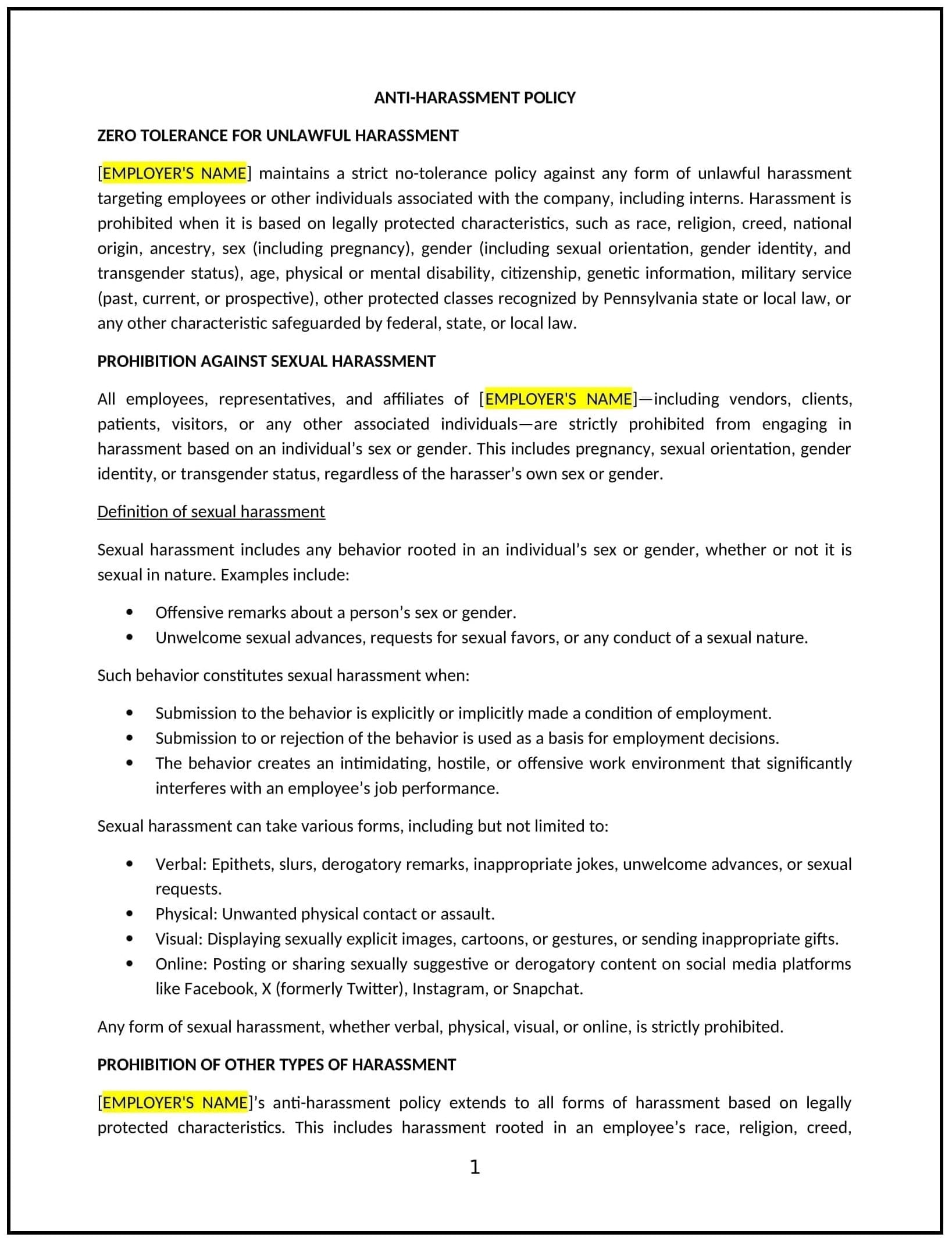Anti-harassment policy (Pennsylvania): Free template
Got contracts to review? While you're here for policies, let Cobrief make contract review effortless—start your free review now.

Customize this template for free
Anti-harassment policy (Pennsylvania)
This anti-harassment policy is designed to help businesses in Pennsylvania create a safe, inclusive, and respectful workplace. Whether managing a small business or a large organization, this template provides guidance for preventing, identifying, and addressing harassment in compliance with Pennsylvania labor laws and federal regulations, such as Title VII of the Civil Rights Act.
By using this template, businesses can establish clear expectations, foster accountability, and reduce the risks associated with workplace harassment.
How to use this anti-harassment policy (Pennsylvania)
- Define harassment: Clearly specify behaviors considered harassment, such as verbal abuse, unwelcome physical contact, or offensive jokes based on protected characteristics.
- Establish reporting procedures: Provide clear steps for employees to report harassment, including designated contacts like HR or management.
- Outline investigation protocols: Detail how complaints will be investigated, emphasizing confidentiality, impartiality, and prompt action.
- Include preventive measures: Highlight the importance of employee training, awareness initiatives, and fostering an inclusive workplace culture to reduce incidents.
- Reflect Pennsylvania-specific considerations: Tailor the policy to align with Pennsylvania’s workforce needs, such as addressing regional labor trends or industry-specific dynamics.
Benefits of using an anti-harassment policy (Pennsylvania)
A comprehensive anti-harassment policy promotes a positive work environment. Here's how it helps:
- Promotes inclusivity: Encourages a respectful workplace environment where employees feel valued and supported.
- Supports compliance: Ensures adherence to Pennsylvania labor laws and federal anti-harassment regulations, minimizing legal risks.
- Enhances trust: Demonstrates a business’s commitment to addressing and preventing harassment promptly and effectively.
- Provides clarity: Establishes clear expectations for employee conduct and complaint procedures, reducing misunderstandings.
- Mitigates risks: Reduces the likelihood of legal disputes or reputational damage by addressing harassment proactively.
Tips for using an anti-harassment policy (Pennsylvania)
- Communicate expectations: Share the policy with all employees and contractors to ensure awareness of workplace behavior standards and reporting mechanisms.
- Train managers: Equip supervisors with the skills to recognize, address, and prevent harassment in their teams and handle complaints effectively.
- Monitor workplace culture: Regularly assess employee feedback and workplace dynamics to identify potential issues and maintain an inclusive environment.
- Document incidents: Maintain thorough records of complaints, investigations, and resolutions to ensure accountability and compliance with regulations.
- Review periodically: Update the policy to reflect changes in Pennsylvania laws, federal requirements, or business practices.